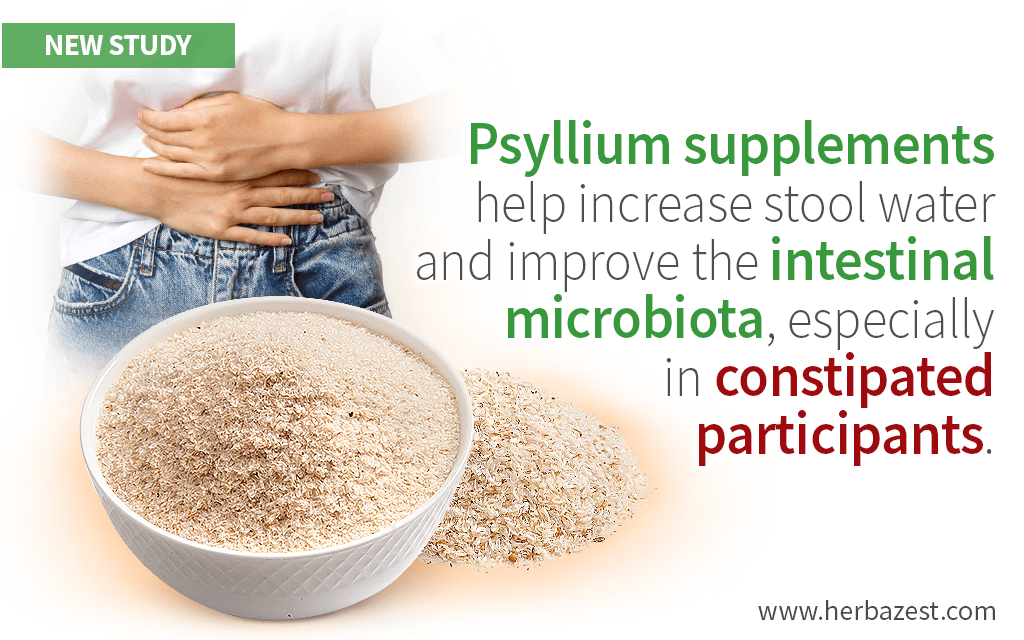Whether it's for occasional issues or chronic struggles, taking psyllium is one of the most effective options for constipation relief.1 These beneficial effects are mostly attributed to its ability to increase the fluidity of colonic content, thus softening the stool and increasing bowel movement frequency.
Interestingly, certain compounds in psyllium may be used by the “good” bacteria in the gut for growth. In other words, these compounds may have prebiotic benefits. British researchers evaluated the effects of psyllium of intestinal microbiota in healthy and constipated adults.
The Study
In this study, eight healthy and 16 chronically constipated participants were randomly divided into two groups. For seven days, the intervention group consumed psyllium, while the control group ate the placebo with maltodextrin.
Before and after the study, researchers measured the participants' gastrointestinal transit, fecal water content, and short-chain fatty acid and stool microbiota composition.
The Results
In healthy participants, taking psyllium supplements led to small but significant changes in the microbial composition (namely, increased levels of Veillonella and decreased levels of Subdoligranulum).
In constipated participants, these beneficial changes were even more pronounced: taking psyllium caused changes in seven bacterial genera (increased levels of Lachnospira, Faecalibacterium, Phascolarctobacterium, Veillonella, and Sutterella and decreased levels of uncultured Coriobacteriia and Christensenella).
Additionally, researchers found associations between several bacterial taxa and altered stool transit, fecal water content, and acetate and propionate levels.
For reference, acetate and propionate are short-chain fatty acids whose levels are substantially reduced in individuals with constipation and associated with longer transit time of stool through the colon.
What Does this Mean?
The results of this study have demonstrated that psyllium causes beneficial changes in the intestinal microbiota, especially in patients with constipation.
Constipation happens when stool moves through the colon too slowly, and too much water from the stool is absorbed by the colon, making the stools hard and dry. By increasing stool water content, psyllium helps soften stools and promote bowel movements.
As it turns out, psyllium may also help relieve constipation by altering the microbiome composition. These are important findings as several studies have suggested that imbalanced gut microbiota may contribute to constipation.2
Other herbs that may be useful in alleviating constipation include flax, chia, oats, pears, and apples.
Sources
- International Journal of Molecular Sciences, The Effect of Psyllium Husk on Intestinal Microbiota in Constipated Patients and Healthy Controls, 2019
Footnotes:
- Neurogastroenterology & Motility. (2018). Demonstration of differences in colonic volumes, transit, chyme consistency, and response to psyllium between healthy and constipated subjects using magnetic resonance imaging. Retrieved September 22, 2022 from https://pubmed.ncbi.nlm.nih.gov/30062794/
- Frontiers in Medicine. (2019). Gut Microbiota and Chronic Constipation: A Review and Update. Retrieved September 22, 2022, from https://www.ncbi.nlm.nih.gov/pmc/articles/PMC6379309/




